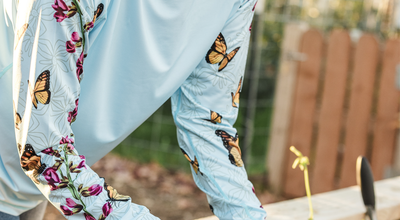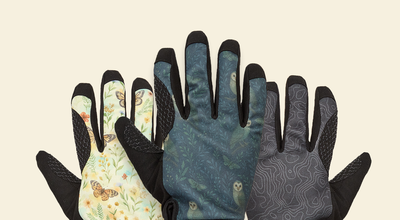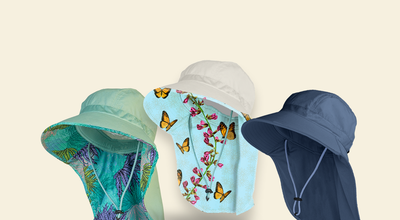Pledge to Protect Pollinators: What Farmers and Gardeners Can Do
There have been many challenges facing plant and animal life on the planet. From climate crisis to biochemicals and microplastics, our planet seems to be in constant conflict with the presence of human life. And while there’s significant attention on some of the larger issues facing a changing world—such as rising sea levels and the contamination of water tables—some of the smallest casualties of the changing environment are the most consequential: pollinators.
Pollinator populations are essential for the health of natural ecosystems. Over the past decade, the national bee population has fallen by 30 percent. Bees make up 80 percent of the world’s pollinators, with honey bees pollinating 80 percent of all flowering plants, including more than 130 types of fruits and vegetables in the United States alone. It is estimated that one out of every three bites of food eaten is a direct result of bee pollination. The role of pollinators goes beyond agriculture and our gardens; more than 80 percent of the world's flowering plants depend on pollinators to reproduce. Without this diversity of plant life, our air, soil, water quality, and access to food will be dramatically impacted.
The factors leading to pollinator population decline are complex, but habitat loss is identifiably the leading cause. Industrial farming practices play the biggest role in decimating the ecosystems pollinators live within. Agricultural fields now replace many traditional hay and wildflower meadows. Not only is the physical space disrupted by farming, according to fao.org, but bee populations are also in decline due to industrial farming, mono-cropping, and the excess use of agricultural chemicals. Looking more acutely into the effects of these farming practices, we see higher temperatures associated with climate change due to these actions.
The situation is critical, but our efforts to help are far from futile. Awareness of the urgency in the conservation of bees and other pollinators is more prevalent than ever. Yet, time is of the essence, so we must act now and meet the issue on all fronts.
Here’s what we can do:
Growing Pollinator-Friendly Plants in the Garden
Strategically growing plants that overlap in bloom times is the most direct and practical course of action an individual take in their garden. Creating a mix of perennial and annual plants provides flowers for pollinators to pollinate gardens more regularly. Also, varying the types of plants with many flowers like lavender, mint, dill, and carrots gives bees a better chance of collecting the amount of nectar they need to thrive.
Shelter and Rescue
Another step we can take to create a better sustaining environment is to allow shelter for bees and other pollinators. Some pollinators seek refuge in things like brush piles, woodpiles, and loose soil. And in the event bees build an unwanted hive in your yard, contact a local beekeeper rather than a pest control service. This will allow the bees to live elsewhere instead of being exterminated.
Growing Education and Awareness
According to xerces.org, more than 90 percent of pollen samples taken from beehives in agricultural landscapes are contaminated with more than one pesticide. We know that there are some instances where pesticides are needed in managing landscapes. Yet, many pesticides include insecticides, herbicides, and fungicides toxic to bees and other pollinators. Pesticides not only harm pollinators directly, disrupting their ability to navigate but remove necessary floral resources they rely on.
Understanding how pollinators come into contact with pesticides helps prevent exposure to these chemicals. Pollinators come into contact directly when pesticides are applied to nearby flowering plants through residue or contact. Pollinators then visit plants previously treated with pesticides and contaminated nests and nesting materials. The chemicals from pesticides tend to be long-lasting and can detrimentally affect the pollinators’ natural environment for extended periods.
Understanding the detrimental effects these chemicals have on pollinator populations is vital in protecting the multiple declining species. If you must use pesticides, choose organic pesticides, and use them sparingly without directly contacting flowering plants.
Supporting Pledges and Organizations in the Effort to Protect Pollinator Populations
While our efforts are vital on an individual and local community level, participation in non-profit campaigns helps address the issue beyond physical reach. Farmer’s Defense is taking action by releasing its first-ever synthetic Bee Sleeve made from 100 percent recycled materials in response to the global threat of pollinator population decline. And with the help of Pollinator Partnership, 10 square feet of pollinator habit will be restored for every sleeve sold. These acts address the factors affecting pollinator populations on two fronts: reducing our carbon footprint and donating proceeds from the sales of the sleeve to pollinator habit creation and restoration. This is just the beginning of our mission to strengthen pollinator populations.
Some issues associated with habit loss cannot be addressed immediately. Even with our most valiant efforts, it is unlikely that we can undo insensitive urban development and modern farming methods that have become established global norms over the past century. However, it is feasible to rehabilitate and create environments amongst the deteriorated ones better suited for pollinators to thrive. These measures begin in our backyards and community gardens and continue collaborating with non-profit organizations, like Pollinator Partnership, to build and strengthen habitats for pollinator populations.
Without pollinators, our world will become unrecognizable, and the future of food uncertain. We must act now to provide a safe and habitable planet for pollinators, providing for them the way they’ve provided for us for millennia.












